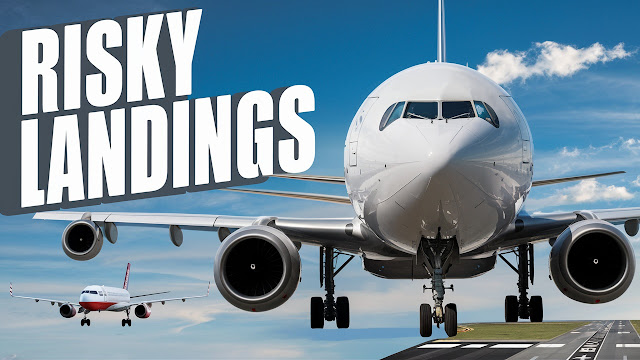Pioneering Pilot Mental Health: Inside the Movement to End Stigma
In the world of aviation, strength is often measured by calm under pressure, precise thinking at 30,000 feet, and the ability to lead under stress. But what happens when the pressure isn't just in the cockpit, but in the mind?
This question lies at the heart of an inspiring journey shared by Dr. Charlie Carreri, a former F-16 pilot turned mental health advocate who’s changing how airlines—and pilots—talk about mental well-being.
From Fighter Jets to Feelings: The Unlikely Path of Dr. Carreri
Dr. Carreri's aviation story began in 1976 when he joined the Air Force as a boom operator. His love for flying grew quickly, propelling him toward a private pilot’s license and later into the cockpit of an F-16 fighter jet during the Gulf War. After a decorated career, he took an unexpected turn—into the world of counseling.
“I had to find a new mission,” Carreri reflects. “And that mission became helping pilots navigate emotional turbulence.”
Armed with a second master’s degree in Christian counseling, he joined American Airlines and was soon recruited by the pilot union to support their Employee Assistance Program (EAP). But what started as a small side role quickly grew into a movement.
Today, Dr. Carreri directs the Center for Aviation Mental Health (c4amh.com) and serves as a mental health advisor to the Southwest Airlines Pilots Association (SWAPA), leading their Project Lift initiative.
Project Wingman: The Birth of a Lifeline
It began with a few brave conversations.
By 2011, the airline's traditional support system was overwhelmed. Pilots were struggling—emotionally and mentally—and the existing programs just weren’t enough. That’s when Carreri launched Project Wingman, inspired by the Air Force concept of a "combat wingman"—someone who flies beside you, has your six, and helps guide you home.
Starting with just three carefully selected peers, they built a confidential support network. Over time, this “little experiment” evolved into a team of over 40 trained volunteer pilots, all ready to listen, support, and walk with fellow aviators through difficult times.
They didn't just wait for the phone to ring. Carreri and his team launched an aggressive outreach campaign—distributing over 25,000 hotline magnets, making videos for human factors training, and even reaching pilots' families. Spouses and kids knew: if Dad or Mom was ever struggling, that little magnet on the fridge might save a life.
A Tragedy That Changed Everything
In 2015, tragedy struck. The world watched in horror as the Germanwings co-pilot, secretly battling depression, deliberately crashed his aircraft into the Alps, killing all 150 aboard.
For Carreri, who served on the FAA’s Aviation Rulemaking Committee (ARC) investigating the crash, the conclusion was heartbreaking but clear: the pilot needed help—but didn’t feel safe asking for it.
“That incident,” he says, “put peer support on the global radar.”
In Europe, peer support programs became mandatory. In the U.S., while not yet required, the momentum is building. Programs like Project Wingman, Project Lift (Southwest), and SOAR PSP (United) are showing pilots that seeking help doesn’t mean surrender—it means survival.
Facing the Real Enemy: Stigma
If there's one battle Carreri continues to fight, it's the stigma surrounding mental health.
Pilots often fear that opening up will lead to losing their medical certificate—and with it, their careers. But the numbers tell a different story. In the U.S., only 0.0008% of pilot medicals are rejected due to mental health issues. The fear is far worse than the reality.
What peer programs offer is a middle ground: a safe space to talk, to be vulnerable, to be human—without immediate professional consequences. Sometimes it’s just a check-in call: “Hey, how are you doing today?”
That simple act of kindness can open doors to healing.
Not Just in the West: Bridging Cultural Barriers
Cultural attitudes toward mental health vary widely. In the U.S. and much of the West, there’s growing openness. But in some cultures—particularly in parts of Asia—silence, pride, and traditional views of masculinity often prevent pilots from seeking help.
Yet change is coming. Japanese airline JAL has started its own strong mental health program, and awareness is spreading. Carreri hopes to see mental health become a normalized part of pilot training across all regions.
He's also focusing on the next generation: creating mental health education curricula for university aviation programs, including Auburn, Purdue, and the University of North Dakota.
Building a Global Alliance
What began as one man's mission is now a worldwide movement.
In 2018, Carreri helped launch the International Pilot Peer Assist Coalition (IPAC), now a robust international alliance connecting peer programs from airlines across the globe. It’s currently run by a British Airways captain and serves as a hub for sharing best practices and building resilience.
And the results? More calls. More conversations. More pilots finding their way back to mental clarity—without fear.
Looking Forward with Hope
Dr. Carreri’s work isn’t just saving careers—it’s saving lives. With the FAA now reducing barriers to disclosure and a new education initiative on the horizon from the 2024 ARC committee, the path ahead looks hopeful.
As he puts it, “This is about building a culture where it’s okay to not be okay. Where we’re wingmen for each other—on the ground as much as in the sky.”
Resources for Pilots and Families:
- Center for Aviation Mental Health: c4amh.com
- Phone Support: 817-658-9290
- Books Dr. Carreri Recommends:
- The Bible (especially the Psalms—for strength in anxiety, depression, loss)
- Man’s Search for Meaning by Viktor Frankl (for hope amidst hardship)





Comments
Post a Comment